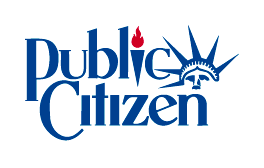

Seven Reasons to Vote NO on S.
1172,
Claritin's Special Interest Patent Extension Bill
Click here for
a complete text of the bill,
list of co-sponsors, and current status.
- Multibillion-dollar cost to consumers and the U.S. health care system.
Consumers would pay through the nose for a three-year patent extension for Claritin and six other "pipeline" drugs that would benefit from S. 1172 because cheaper generic equivalents would not be made available sooner. A new study by the University of Minnesota's PRIME Institute estimates the cost at $11 billion between 2002 and 2012. Of that, $2.5 billion would be paid by Medicaid, the Veterans Administration and other government health programs. Taxpayers' share would rise to $5 billion if a Medicare drug benefit is approved. At a time when Congress and the Clinton administration are struggling with how to make a Medicare prescription drug benefit affordable, these bills would only add fuel to the fire of rapidly rising drug prices.
- Subverts the purpose of drug patents from research incentive to profit protection.
The 1984 Hatch-Waxman Act deliberately distinguished between pipeline drugs such as Claritin (so-called because they were in the FDA approval process when the Act became law) and drugs that were not that far along. Hatch-Waxman granted up to two years of patent term restoration to the pipeline drugs but, to provide an incentive for new research and development, reserved the five-year restoration period for drugs that had not been submitted for FDA approval. The legislative history is clear: "[Congress] established different maximum periods of extension to provide greater incentive for future innovations." (H.R. Rep. No. 98-857, pt. 1 at page 41 (1984).)
- Claritin already has benefited from extra patent protection.
In addition to the two-year patent term restoration, the Hatch-Waxman Act granted pipeline drugs a number of special provisions -- including additional years of market exclusivity for patenting new formulations -- which have benefited Claritin. The drug also got almost two years additional patent protection from the 1994 General Agreement on Tariffs and Trade (GATT).
- Who's telling the truth about FDA's review of Claritin?
Schering-Plough claims that the FDA's review of Claritin took too long, but the company won't waive confidentiality requirements so the FDA can make public what took place. Rep. Henry Waxman (D-Calif.) and others have asked the General Accounting Office to investigate, and the that report is pending. Why not wait for the results?
- Profits, not R&D, is Schering-Plough's priority.
Schering-Plough put more than one and-a-half times as much into profits as R&D in 1998: 22% into profits, and just 12.5% into R&D. If a three-year patent extension for Claritin is allowed, based on industry standards only 3.6% of Schering-Plough's additional revenue would be used for the discovery of new drugs - the rest would go into additional profits, marketing, advertising, and other corporate expenditures. [Stephen Schondelmeyer, Patent Extension of Pipeline Drugs: Impact on U.S. Health Care Expenditures, University of Minnesota, July 1999, p. 10.]
- Enacting S. 1172 opens the floodgate.
S. 1172 amounts to Congressional forum shopping for Schering-Plough by putting the Commissioner of Patents and Trademarks -- who has no expertise in this area and has historically been a proponent of brand-name patent extensions -- in charge of a stacked-deck process that would almost inevitably result in the extension being granted. Once this process is in statute, it would invite the makers of other blockbuster drugs to ask Congress to "tweak" its terms so that they too could qualify for lucrative patent extensions. There are 20 such drugs [for example, Prozac, Prilosec, Vasotec], with annual sales of almost $20 billion, with patents due to expire between 2000 and 2005.
- The Claritin Patent Extension Bill is opposed by dozens of consumer, labor, senior and public health groups, including Public Citizen, AARP, AFL-CIO, National Council of Senior Citizens, Consumer Federation of America, United Auto Workers, AIDS Action, American Federation of Teachers, Center on Disability and Health, National Organization for Rare Disorders (NORD), Communications Workers of America, Families USA, Gray Panthers, ILWU, National Senior Citizens Law Center, Neighbor to Neighbor, AFSCME, American Federation of Retired Teachers, Network - A National Catholic Social Justice Lobby, UNITE, U.S. PIRG, and United Steelworkers of America.
November 16, 1999
More information: Maura Kealey, 454-5116
Back to the Prescription Drugs Home Page
Back to the Health Care Home Page
Back to the Health, Safety and Environment Home Page
Back to the Corporate Welfare Reports and Fact Sheets Home Page
Back to the Corporate Welfare Home Page
Back to the Congress Watch Home Page